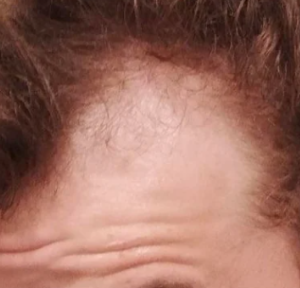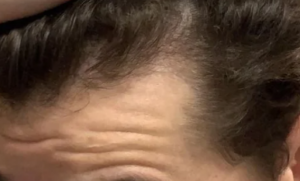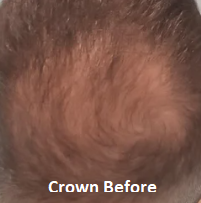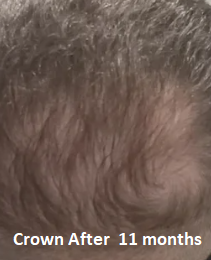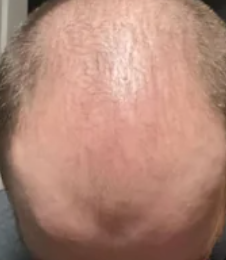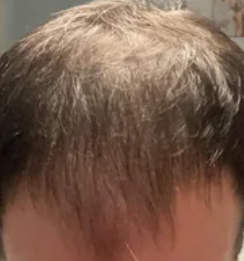I’m 21 and I want to do an FUE. Is it ok?
So i’ve been battling hair loss since i was 16-17 or younger(had a high hairline to start with so didn’t actually know) i’ve been on propecia and mnoxidio for around 3 years now and i have sabora too which i started treating with nizoral recently. I had a problem down there since i was younger cause of my abnormally large member and since fin i have weaker erections so i decided to stop doing fin and change that with prp treatments I’m seeing little hairs all over the hairline but no regrowth so i want to get a fue transplant Btw im nw2-3 cant decide but the men on both my parents side are bald And the hair loss i have is mainly in the hairline area Is there anyone who can advice me what to do? Its really taking a toll on me and my parents will pay for the treatment so i wont have a financial problem Thanks alot in advance your balding little brother.
Doing a hair transplant at your age would be a big mistake because you don’t know what is going to happen to you in a year or so. If you had a hair transplant now, in a year you would likely need another. Then when you did the second one, in a year you might need a third transplant. Do you get it, it never ends until your final hair loss pattern can be documented by a good doctor. Usually I can do it when a man reaches 25-26 years of age and the consider a hair transplant if indicated. An FUE is a hair transplant and I am the first to perform FUE and wrote the original articles on it so I know what I am talking about.
2019-03-06 05:40:272019-03-19 07:41:50I’m 21 and I want to do an FUE. Is it ok?
1 year on minoxidil (photo)
I’m 25 and have been on finastride for a year, and still don’t have much hair
10 Months Since Chemo And Hair Has Still Not Fully Regrown
My son who is 21 completed a 4 cycle chemo treatment in May 05. Today his hair is still very thin, fine and spots of balding. I have left a message today with his doctor for some advise when I saw your web page. Any suggestions? I know hair growth takes a while but it is going on 10 months now. Thanks!
Hair loss during and after chemotherapy is one of the most distressing side effects. Hair loss occurs because chemotherapy targets all living cells in the body including hair follicle cells. Simply put, chemotherapy is poison to all living cells. It is a medical balancing game where the cancer cells are killed before the chemotherapy kills you.
Hair follicle cells have three phases of growth:
- Growth phase (Anagen phase) which lasts anywhere from 2 to 6 years. This is the phase where your hair is actively growing at approximately 10cm per year. 85% of hair is at this phase at any given time.
- Transitional phase (Catagen phase) which lasts about 2 weeks. This is the phase where the hair follicle shrinks and prepares to enter the resting phase.
- Resting phase (Telogen phase) which lasts about 1- 2 months. This is the phase where hair does not grow but stays attached to the follicle. Some hairs are shed at this phase, but at the end the hair follicle re-enters the growth phase to start the cycle over again. 10-15% of hairs are at this phase at any given time.
During chemotherapy, hair in the growth phase is most affected due to the active nature of the hair follicle. Ideally, hair lost during chemotherapy should start to grow after 3 to 6 months. Unfortunately, new hair may grow thinner, slower, or with different texture or color.
Your son’s hair growth seems to be returing, but at a much slower rate than you have anticipated. This may be due to the 4 cycles of chemotherapy. This may also be due to the fact that your son’s body is recovering at a different rate than expected. It may just be a normal recovery pace for your son. Ultimately, if your son is healthy and is in remission, that is the most important priority. Neverthess, hair loss is certainly the most visible and distressing side effect of chemotherapy and a stigmata of cancer. There are a number of support groups and wigs available to chemotherapy patients, which are sometimes even covered by insurance companies. Finally, topical creams or Propecia would not be of benefit for hair loss from chemotherapy.
By Dr. Jae Pak and Dr. William Rassman
[Note: This blog entry has been answered by Dr. Jae Pak, who has been working with Dr. Rassman for the past 9 years developing new surgical instruments and hair transplant procedures.]
2006-03-07 15:36:252006-03-07 23:04:4210 Months Since Chemo And Hair Has Still Not Fully Regrown
I’m 35, can I stop taking finasteride?
If most hair loss occurs by 35 and then pretty much stabilises does that mean we can stop taking fin after 35?
Hair loss is progressive. If you are stable on finasteride, stop it, and you might find instant hair loss to a pattern that you should have had if you didn’t take finasteride. I call this “Catch-up Hair Loss,” which means that you lose all of the benefits plus what you fixed by going on the drug. Catch-up Hair Loss always occurs in men on long-term finasteride. This is a warning for you: don’t do something that you might regret, as so many people I have taken care of told me when they decided to stop taking finasteride.
11 months on finasteride
I’m Between a Norwood 4 and 5 at Just 22 Years Old!
Hello!
I’m a male that recently turned 22. I’ve been suffering from hair loss for about 4-5 years and started with minoxidil at the age of 19½. The last 9-10 months have been like hell (my hair loss accelerated quickly and the depression started). I had decent coverage all over the scalp last summer but that’s not the case anymore. The hair is thin all over the scalp and I’m soon going to have a baldspot on the back of my head.
I’m somewhere between NW4 and NW5 on the norwood scale. I’ve got alot of tiny almost transparent hair on my scalp.
I want to keep the hair I still got on my head but also reverse it if possible. What do you recommend? Shall I try propecia or even dutasteride?
 You probably should have started Propecia (finasteride 1mg) when the hair loss process began, instead of minoxidil. Young men can reverse hair loss on finasteride, but without trying it, you will not know. At the least, the process can be slowed or stopped with finasteride.
You probably should have started Propecia (finasteride 1mg) when the hair loss process began, instead of minoxidil. Young men can reverse hair loss on finasteride, but without trying it, you will not know. At the least, the process can be slowed or stopped with finasteride.
You need a good doctor to manage your situation, because after all, it is your hair and your future hair loss we are talking about.
14 weeks minoxidil, microneedling and finasteride (photo)
Hair length alone can not produce such a dramatic effect in this 27 year old male. Great result. The frontal hairline is less sensitive to these treatments in this man. You would have to keep up the combined minoxidil and finasteride treatment after the hair transplant to maintain the gains you made in the top and crown of your head. Despite this, you should be congratulated for this spectacular turn around.
I’m Intrigued By Your Attitude on Shock Loss
Dear Balding Blog Contributors, I mean no offense by this post-I am genuinely just intrigued.
After reading 32 pages of baldingblog.com blog posts which mentioned shock loss, I was intrigued by the attitude that was expressed, which seemed to be ‘shock loss happens, deal with it-propecia may help’.
What intrigues me is that this attitude seems to be contrary to your role as pioneering doctors in this field. After seeing shock loss affect and no doubt traumatize patients paying large sums of money to GAIN hair, should you not be investigating treatments which may help to reduce it? I’m no expert, but off the top of my head I can think of drugs to reduce the immune system’s rejection of hairs, drugs to calm inflammation or stress in the body, topical drugs for the same end, dietary supplements etc.
Am I missing something, or is the attitude I have interpreted you as expressing a little negligent of the well being of hair transplant patients?
Maybe you are missing the point. We (at least here at NHI) do not recommend hair transplants to patients who are at risk for significant shock loss, but some hair loss will occur that is inevitable with or without any medication. There will also be some form of nerve damage with surgery (both strip and FUE) in the small cutaneous nerves that are all over the scalp. This will make the scalp feel numb for several weeks to months, more in some areas than others. There will also be some pain while we’re at it, which may persist after the procedure (minor pain to some and rarely severe to others). These are just a few of the risks associated with surgery. We do not take this lightly. It is an educational and informed process that all surgery candidates go through. You don’t just show up to have surgery and get great hair. There are always these risks that need to be considered for the benefit of looking better (more hair). If any of the risks are unacceptable to both the patient and the surgeon we do not go ahead with the surgery.
Some patients are rightfully concerned about shock loss with hair transplant surgery, but they should not be obsessed with it. Reality is that even without surgery, hair loss will happen if you have the balding gene (pattern). That is the reason why people have surgery, right? And the timing of surgery is highly variable for each individual who comes for a consultation. If the risk of shock hair loss is too great then we will hold off on surgery with medication until the benefits will outweigh the risks. An example of this would be someone in their early 20’s who is rapidly losing hair and is not on medications (like finasteride), but still has a decent amount of existing hair to cover their thinning. These are things that cannot be conveyed completely on a blog, as each case is different.
To be clear, there have been no medications that completely stop genetic hair loss or shock hair loss. At best what we have seen in our 20+ years in practice is that Propecia helps with shock loss. If you can point out the drugs you are referring to which “reduce the immune systems rejection of hairs”, please let us know. Immune suppression is a dangerous process. Take note, however, anti-rejection types of drugs you may be referring to have many unfavorable and sometimes dangerous or deadly side effects. One minor side side effect is… hair loss. Not so simple, eh?

